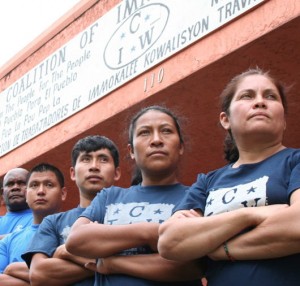Podcast: Play in new window | Download
Greece, the EU, the United States and Fight Back
The huge and sustained fight back against massive austerity cuts continues in Greece, in that small southern European country of 11 million people, half of whom live in Athens, there’s been a wave of general strikes going back to August of last year. Not only are the economic powers that be particularly in Germany forcing terrible cut backs on the standard of living of the Greek people, there also hollowing out democracy in that country. The country, after all, the birth place of democracy. Despite their efforts, the Left in Greece has grown enormously and now rivals in size the combination of the right wing parties. What happens in Greece is going to have a ripple effect in other European countries particularly, Portugal, Italy, Spain, Ireland and Hungary.
- In Europe, we see the rich countries working really hard to punish the debtors.
- Not to ask what the conditions were that got them into debt, not to admit that for the years these people were in debt, they paid off handsomely to the creditors in high interest rates.
- Nor is there any examination of the conditions under which this happened so that there’s nothing being done to change those conditions.
- We are instead engaged in a vicious punishment of a small country, 11 million people. It’s attempt to terrorize the rest of Europe into thinking of not resisting.
- Those that are closest to Greece that are in trouble are the following: Portugal, Spain, Ireland, Italy, Hungary.
- How did it come that the Germans are doing so well and the Greeks so badly?
- The Europeans as a people had gone through 2 of the worst wars human beings had ever experienced, fought overwhelmingly on European soil.
- So they embarked on a unity starting in 1945 and came about in the 1990s. Took them a long time.
- In order for a unified Europe to be, a source of peace and prosperity, it’d have to balance out the rich and the poor.
- Who were the poor ones coming into the European Union. Greece and Portugal and Spain, and later eastern Europe.
- None of that was done under the unified Europe the equalizing process. The Germans the French and the Dutch were terrified of unity, they wanted the big market, but they were afraid that businessmen would move production from the high wage parts of Europe, Germany, Scandinavia, etc. to the poorer places where wages were lower.
- The extreme example is Greece. They lost out, they had to pay high European prices, they are stuck with the currency of Europe, they’re buying more German products, as their own industries disintegrate.
- German wealthy people took the profits they earned and lent them to the Greeks and the other southern Europeans. To blame the borrower and exonerate yourself as the lender is to not see the entire disaster.
- This is capitalism delivering a disaster to the majority of people.
- Greece is also a population coming out of shock and its very very angry.
- A socialist party that imposed austerity on the mass of the people has now got the people’s response, 8 percent support you.
- It’s hard to imagine that you’re not moving toward a fundamental civil conflict.
- Workers taking over the enterprises is number one. Number two there ought to be a nationalization of wealth in this society, so that its redistributed in a way that makes society fair and equitable.
- Socialism has its problems too, but we have a capitalism that is becoming intolerable for tens of millions of people.
- We have to recognize that not making a dramatic break is plunging people into an even greater degree of risk.
- The Iowa Farmer’s Militia issued a decree. The next judge that authorizes a foreclosure, we’re going to kill him.
- Roosevelt had to mobilize the Army and the National Guard to protect the judges.
- This is a re-run of an old movie and it never ends well.
Guest – Richard D. Wolff is Professor of Economics Emeritus, University of Massachusetts, Amherst where he taught economics from 1973 to 2008. He is currently a Visiting Professor in the Graduate Program in International Affairs of the New School University, New York City. He also teaches classes regularly at the Brecht Forum in Manhattan.
——-
Why I’m Suing Barack Obama: Chris Hedges
In March of this year, the latest version of the National Defense Authorization Act signed by President Barack Obama on Dec 31, 2011 will take effect. As many listeners know, this act authorizes the military for the first time in more than 200 years to begin domestic policing. That means the military can indefinitely detain without trial any US citizen deemed to be a terrorist or an accessory to terrorism. You could then be shipped to a black site or offshore prison. We’ve discussed in past shows the vague premise of materially aiding terrorism or in this bill the terms “substantially supported,” “directly supported” or “associated forces.” We’re joined today by returning guest Chris Hedges to talk about his recent article Why I’m Suing Barack Obama which examines why the National Defense Authorization Act was passed.
- It turns over almost 200 years of legal precedence so that the military is allowed to engage in domestic policing.
- Diane Feinstein had proposed that US citizens be exempt from this piece of legislation both the Obama Whitehouse and the Democratic Party rejected that.
- Obama issued a signing statement saying this will not be used against American citizens.
- That fact is that it can be legally used against American citizens.
- There was an opportunity to protect American citizens and due process, the chose not to do that.
- It expands this endless war on terror.
- There are all sorts of nebulous terms such as associated forces, substantially supported.
- When you look at the criteria by which Americans can be investigated by our security and surveillance state, its amorphous and frightening.
- People who have lost fingers on a hand, people who hoard more than 7 days of food in their house, water proof ammunition. I come from rural parts of Maine, that’s probably most of my family.
- Its a very short step to adding the obstructionist tactics to the Occupy Movement.
- The very agencies that are being pulled into domestic policing, especially the Pentagon, didn’t push for the bill.
- They approached me and said they needed a credible plaintiff, because I had been the Middle East Bureau Chief for the New York Times.
- I spent considerable time with both individuals and organizations that are considered by the US State Department to be either terrorists or terrorist groups.
- I’m trying to be proactive, I’m trying to fight it while we can still fight it. The reason we filed in the Southern District Court is because they have a fairly good record of at least being open to issues of civil liberties.
Guest – Chris Hedges, American journalist, author, and war correspondent, specializing in American and Middle Eastern politics and societies. His most recent book is ‘Death of the Liberal Class (2010). Hedges is also known as the best-selling author of War is a Force That Gives Us Meaning (2002), which was a finalist for the National Book Critics Circle Award for Nonfiction.
——-
Immokalee Workers: Trader Joe’s Victory, Campaign Turns To Publix Supermarkets
Earlier this month, Trader Joe’s and the Coalition of Immokalee Workers (CIW) announced they have signed an agreement that will formalize the ways in which Trader Joe’s will work with the CIW and Florida tomato growers to support the CIW’s Fair Food Program. The efforts to push the farm worker living standards above slave labor is gathering momentum in Florida. Now efforts turn to Publix supermarkets. The 28 billion dollar supermarket giant has refused to pay a single penny more to help end farm worker poverty. The Fair Food Program campaign has shifted its focus onto Publix and we get an update from Jake Ratner and CIW member Elbin Perez.
- We finally won with Trader Joe’s and its extremely important for us.
- One of the main tactics we use is protest. We were planning an enormous protest the day Trader Joe’s opened their first Florida store about 30 miles from Immokalee in Naples.
- With that pressure, the day before they opened the store, they signed an agreement with us.
- Historically some received some poverty wages there are no rights in the fields and workers have had no voice in the work place. What are rights without enforcement.
- Workers are now seeing an increase in their paychecks in the form of a bonus that they are receiving from companies like Trader Joe’s.
- Currently we’re also asking Publix to do the same thing and to sign on to the Fair Food Agreement.
- What we’re calling for is a fast. A fast to begin outside of the Publix headquarters which is located in Lakeland Florida. There refusal to participate in these agreements will result in more hunger from more workers.
Guest – Elbin Perez, Coalition of Immokalee Workers member.
Translator: Jake Ratner -son of co-host Michael Ratner. Jake graduated from the University of Pennsylvania. He’s traveled and studied in Cuba and Bolivia, South America. He now works with the Coalition of the Immokalee Workers.





